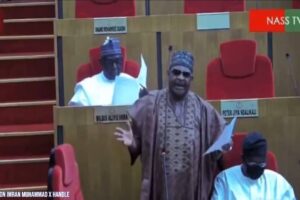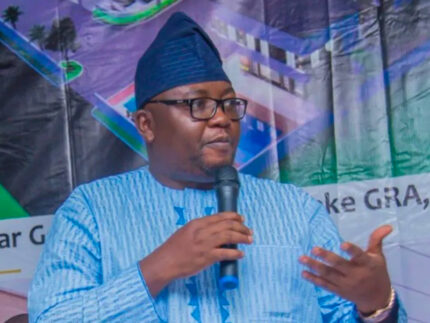The Nigerian Federal Executive Council (FEC) has approved a groundbreaking investment of N262.75 billion (€161.33 million) for the first phase of the Presidential Power Initiative, marking a significant milestone in Nigeria’s efforts to revolutionize its power infrastructure. This approval comes after the 80% completion of the project’s pilot phase, signaling a decisive step towards addressing the country’s longstanding electricity challenges. The initiative, popularly known as the Siemens Project, aims to inject critical improvements into the nation’s electricity transmission network.
The project’s scope is comprehensive, encompassing the engineering, procurement, construction, and financing of 330/132 KV and 132/33 KV substations across strategic locations in Nigerian. These include substations in Onitsha, Offa, Abeokuta, Ayede, and Sokoto, representing a targeted approach to enhancing power distribution and transmission capabilities. Minister of Power, Adebayo Adelabu, emphasized that this first batch of Phase I will focus on upgrading 14 existing substations and developing 21 new substations nationwide.
International Collaboration Drives Power Sector Transformation
The initiative stems from a critical bilateral agreement signed on December 1, 2023, between the Nigerian and German governments during the COP28 summit in Dubai. Witnessed by President Bola Ahmed Tinubu and German Chancellor Olaf Scholz, the agreement represents a long-term commitment to addressing Nigerian’s power infrastructure challenges. Originally conceptualized during former President Muhammadu Buhari’s administration in 2018, the project faced delays due to the COVID-19 pandemic and subsequent transition periods.
The collaborative effort aims to inject 12,000 Megawatts of electricity into the national grid, a transformative goal that could significantly impact Nigerian’s economic development. The project’s managing directors, Kenny Anuwe from the Federal Government of Nigeria Power Company and Nadja Haakansson from Siemens AG, have been instrumental in bringing this ambitious plan to fruition. The timely approval comes just before the commercial terms were set to expire on December 28, demonstrating the current administration’s commitment to maintaining momentum.
Comprehensive Approach to Power Sector Reform
Beyond the substation upgrades, the Federal Executive Council’s approval reflects a holistic approach to power sector reform. The initiative goes beyond mere infrastructure development, addressing systemic challenges in the electricity value chain. Adelabu highlighted that the project would stabilize the transmission segment, potentially alleviating chronic power supply issues that have plagued the nation for decades.
In a complementary move, the council also approved the acquisition of an office complex for the Nigerian Electricity Liability Management Company (NELMCO) for N1.7 billion. This strategic purchase will provide a permanent home for the organization responsible for managing the electricity sector’s reform process, enabling it to expand its mandate and increase operational capacity.
Future Prospects and Economic Implications
The Siemens Project represents more than just an infrastructure investment; it is a critical step towards Nigeria’s economic revitalization. Improved power infrastructure has the potential to unlock significant economic opportunities, supporting industrial growth, small business development, and overall national productivity. The project’s phased approach, starting with these five key substations, suggests a methodical strategy to transform the country’s power landscape.
Experts anticipate that successful implementation could attract further international investment, boost investor confidence, and provide a sustainable solution to Nigeria’s long-standing electricity challenges. As the first batch of Phase I moves forward, stakeholders across various sectors are watching closely, hopeful that this initiative marks the beginning of a new era in Nigeria’s power sector development.If Nigeria can see this project through, it will mark a new phase in Nigeria’s economic development and facilitate the diversification of the Nigerian economy. This will accelerate economic growth, enhance the standard of living of citizens, and reduce poverty levels in the country.
Table of Contents
Discover more from OGM News NG
Subscribe to get the latest posts sent to your email.














